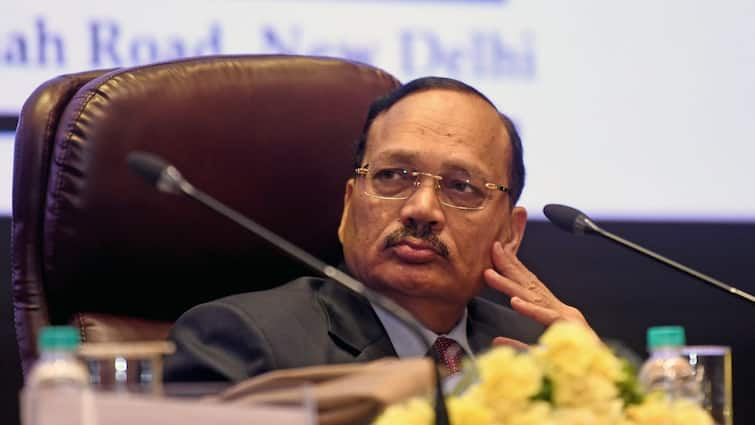New Delhi: Seniormost Supreme Court judge Justice Surya Kant on Friday said technology is a powerful ally but justice will always be a profoundly human enterprise.
He was delivering the keynote address during the inauguration ceremony of the 29th National Law Conference organised by the Bar Association of Sri Lanka at Kandy.
Justice Surya Kant said technology has become a force multiplier for the judiciary and court administration, and the once paper-heavy corridors of the judicial offices are now being replaced by dashboards that track filings, listings and pendency in real time.
Speaking on ‘Technology in the aid of the legal profession-A global perspective’, Justice Surya Kant said as we move forward, certain underlying themes must remain central to our discourse.
“Technology is a powerful ally but justice will always be a profoundly human enterprise. The essence of our calling lies not in data or algorithms but in conscience and compassion,” he said.
Justice Surya Kant said the judge’s discernment, the advocate’s reasoning, the litigant’s dignity and the empathy that animates every fair trial-“these are the living fibres of justice that no machine can replicate”.
He said Artificial Intelligence (AI) may assist in researching authorities, generating drafts or highlighting inconsistencies, but it cannot perceive the tremor in a witness’s voice, the anguish behind a petition or the moral weight of a decision.
“Let us be crystal clear -we are not replacing the lawyer or the judge, we are simply augmenting their reach and refining their capacity to serve. Let technology be the guide and the human govern,” he said.
Justice Surya Kant said it is not hyperbole to say that the legal profession globally is undergoing a metamorphosis in the sense that technology is reshaping how legal work is conceived, how lawyers and judges interact with information and most importantly, how access to justice is delivered to citizens.
“Our challenge is to embrace this transformation wisely, to harness the benefits while safeguarding the values that define our profession, namely, fairness, due process, transparency, human dignity and accountability,” he said.
The apex court judge said case management systems, electronic registries and digital filing platforms have brought about an unprecedented degree of transparency and efficiency.
He said courts in India have introduced virtual hearings, e-filing, and online dispute resolution, which have extended the reach of justice far beyond traditional boundaries, ensuring that access to courts is no longer confined by geography or circumstance.
Justice Surya Kant said for law students and young scholars, technology has become an extraordinary enabler of learning.
“Judges, lawyers, students and litigants must feel assured that technology is a tool of transparency, not opacity-an aid to justice, not an arbiter of it,” he said.
The Supreme Court judge said for the citizens, technology has opened doors that were once tightly shut.
“Online grievance portals, virtual Lok Adalats and digital legal aid services have brought the justice system within reach of the common man, often for the first time,” he said.
Justice Surya Kant said technology has become the great equaliser, bridging the gap between the law and the lives it is meant to serve.
He said amidst these sweeping transformations, one must be reminded that while data may inform decisions, it must never dictate them.
“The prospects before us are undoubtedly exciting, but we must proceed with humility and caution. This evolution carries significant challenges that must be addressed if technology is to be the friend of justice truly,” the apex court judge said.
He also discussed about some of the perils and possible solutions.
Justice Surya Kant said, “We must democratise access to legal technology, not let it become the privilege of the few.” Referring to the issue of data security, confidentiality and privacy, he said it is incumbent upon us and our legal institutions to demand the highest standards of security.
He said AI tools are not infallible and they can generate inaccuracies, “hallucinations” (fabricated or incorrect information), or reflect latent biases of their training data.
“In legal contexts, an error can have dire consequences,” Justice Surya Kant said, adding that experts have warned that we should be most careful about trusting AI in tasks that require judgment, creativity or prediction, because this is where people often overestimate what AI can do.
He said human oversight is non-negotiable.
“The fear that ‘AI will replace us’ still lingers, though most evidence suggests augmentation, not obsolescence. To overcome this, we need leaders, both in the judiciary and the Bar, who are tech-savvy, who lead by example, who adopt transparency, and who build confidence,” he said.
Justice Surya Kant said Indian courts have successfully experimented with e-filing, e-courts, video hearings and legal aid portals, ushering in a new era of accessibility and transparency.
He said “we must embed legal technology more deeply in the curriculum and law schools” and judicial academies should incorporate courses in data science, legal informatics, computational law, AI ethics and design thinking etc.
“We stand at a decisive moment-we can resist technology and risk stagnation, or we can shape and guide it, embedding our legal and ethical values within its design, so that it strengthens, not supplants, justice,” Justice Surya Kant said.
(This report has been published as part of the auto-generated syndicate wire feed. Apart from the headline, no editing has been done in the copy by ABP Live.)



